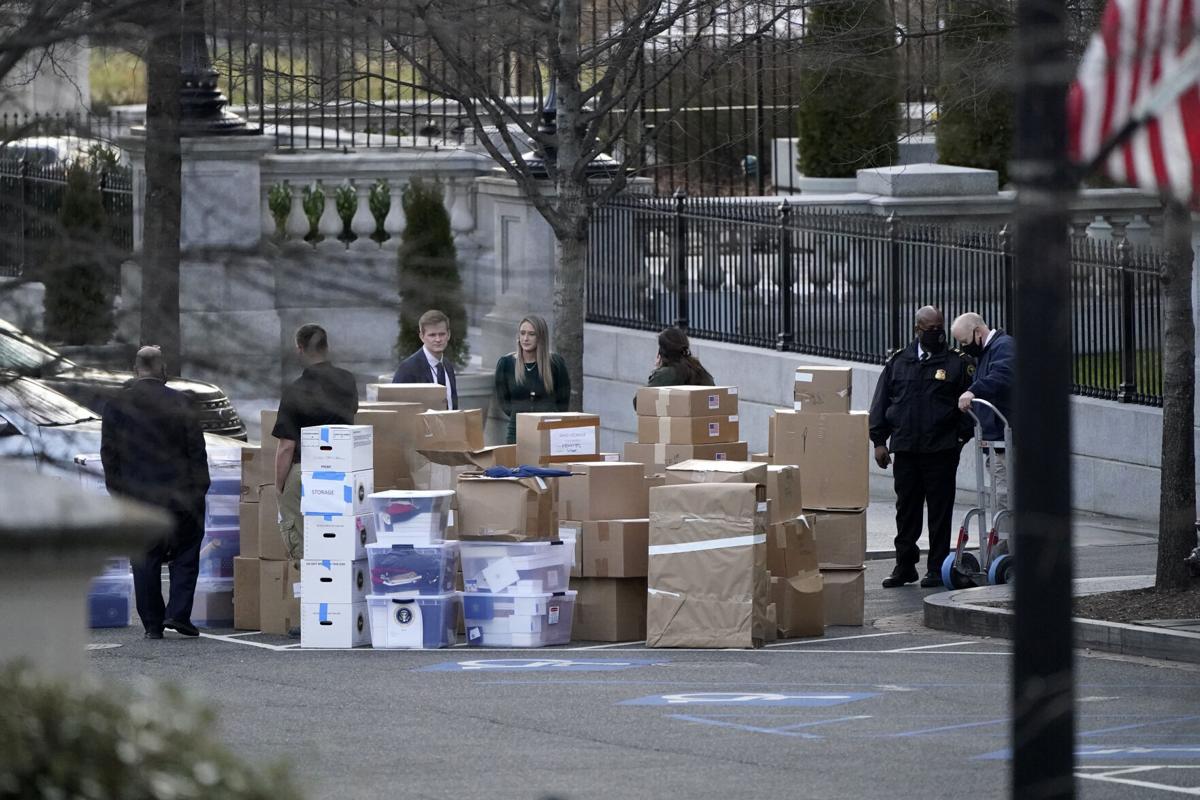FILE – In this Jan. 8, 2020, file photo President Donald Trump arrives to address the nation from the White House on the ballistic missile strike that Iran launched against Iraqi air bases housing U.S. troops in Washington. The public won’t see President Donald Trump’s White House records for years, but there’s growing concern that they won’t be complete, leaving a hole in the history of one of America’s most tumultuous presidencies.
FILE – In this Jan. 14, 2021, file photo people wait for a moving van after boxes were moved out of the Eisenhower Executive Office building inside the White House complex in Washington. The public won’t see President Donald Trump’s White House records for years, but there’s growing concern that they won’t be complete, leaving a hole in the history of one of America’s most tumultuous presidencies.
The public won’t see President Donald Trump’s White House records for years, but there’s growing concern that the collection won’t be complete, leaving a hole in the history of one of America’s most tumultuous presidencies.
Trump has been cavalier about the law requiring records be preserved. He has a habit of ripping up documents before tossing them out, forcing White House staffers to spend hours taping them back together.
“They told him to stop doing it. He didn’t want to stop,” said Solomon Lartey, a former White House records analyst who spent hours taping documents back together well into 2018.
The president also confiscated an interpreter’s notes after Trump had a chat with Russian leader Vladimir Putin. Trump scolded his White House counsel for taking notes at a meeting. Top executive branch officials had to be reminded more than once not to conduct official business on private email or encrypted text messaging systems and to preserve it if they did.
Trump’s baseless claim of widespread voter fraud, which postponed for weeks an acknowledgement of President-elect Joe Biden’s victory, is delaying the transfer of documents to the National Archives and Records Administration, further heightening concern about the integrity of the records.
“Historians are likely to suffer from far more holes than has been the norm,” said Richard Immerman at the Society for Historians of American Foreign Relations. In the Trump White House, “not only has record-keeping not been a priority, but we have multiple examples of it seeking to conceal or destroy that record.”




